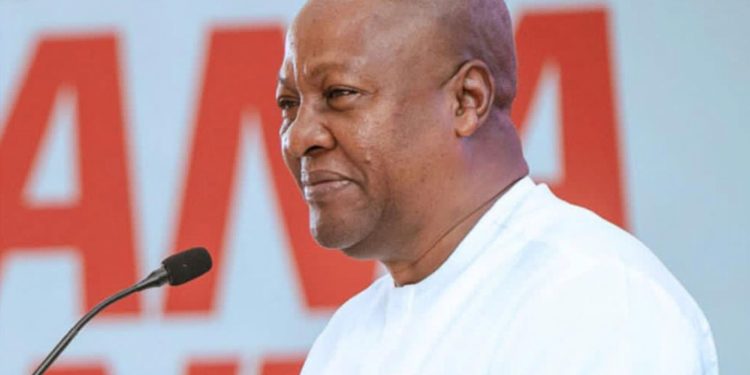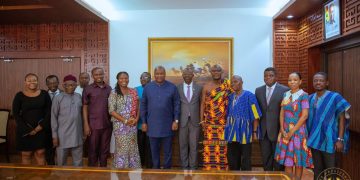President Mahama’s ‘24-Hour Economy’ Mirrors Past Policies, Faces Implementation Concerns
President John Dramani Mahama’s recently launched “24-Hour Economy” policy has been described as conceptually similar to previous national development blueprints such as the “Ghana Beyond Aid” agenda and the 2017 Coordinated Programme of Economic and Social Development Policies.
This was the assessment of Professor Godfred Bokpin, an economist at the University of Ghana, during a panel discussion on Joy FM’s Newsfile on Saturday, July 5. Professor Bokpin, who conducted a meticulous review of the “24-Hour Economy” document alongside earlier national strategies and Ghana’s numerous IMF-supported programmes, identified a persistent lack of policy continuity as a key weakness in the country’s development efforts.
“From conceptualisation to diagnosis, there isn’t much difference in this document and ‘Ghana Beyond Aid’ and then the Coordinated Programme of Social and Economic Development; all of that, there isn’t much difference,” Professor Bokpin stated.
While commending the document’s intentions, he noted that successive governments have consistently identified the same structural challenges, including Ghana’s over-reliance on primary commodity exports—a feature of the so-called “Guggisberg economy”—without achieving meaningful transformation.
Professor Bokpin highlighted the recurring consensus on the need for an agricultural revolution, a theme common to the “24-Hour Economy” and “Ghana Beyond Aid” documents. Despite this recognition, he lamented the persistent failure to move the economy towards value addition, noting that Ghana’s export structure remains largely unchanged since the 1960s.
Drawing parallels between the two policy frameworks, Professor Bokpin said: “If you take time to read Ghana Beyond Aid and you read this [24-Hour Economy], you will see great similarity. Under Ghana Beyond Aid, they called it ‘Wiser Ghana’ with five pillars—Wealthy Ghana, Inclusive Ghana, Sustainable Ghana, Empowered Ghana, and Resilient Ghana.”
While acknowledging that the new policy introduces a sharper focus on leveraging untapped assets such as the Volta Lake, he expressed concerns over the proposal to create a separate authority or secretariat to oversee the initiative. He argued that such moves typify the inefficiencies embedded in Ghana’s development approach.
“We don’t need to create an authority for the 24-Hour Economy,” he asserted, citing past examples like the National Health Insurance Authority where nearly half of the budget is consumed by administrative costs. He also criticised the inefficiency of entities like COCOBOD, remarking that “it’s possible that Cocoa has more V8s than Cocoa beans.”
Professor Bokpin stressed that policy implementation should be integrated within existing ministries, departments, and agencies to avoid wasteful spending and ensure continuity across political transitions. He questioned the necessity of creating parallel institutions when bodies such as the Ghana Statistical Service already exist to carry out key functions.
Further, he raised concerns over the absence of clear Key Performance Indicators (KPIs) linked to measurable success factors in the document. He recommended that the 24-Hour Economy policy adopt the rigorous review mechanisms seen in IMF-supported programmes, which often compel compliance and foster continuity across political cycles.
“There’s potential in this document. When you read it, you will smile for Ghana. Just as in the past, we can write,” he noted, adding that the policy’s estimated $4 billion budget appears insufficient, particularly when the “Big Push” component alone is projected to cost $10 billion.
Professor Bokpin concluded by emphasising that the success of the 24-Hour Economy will depend more on market-driven conditions and the effective use of existing state institutions than on the creation of new bureaucracies.








